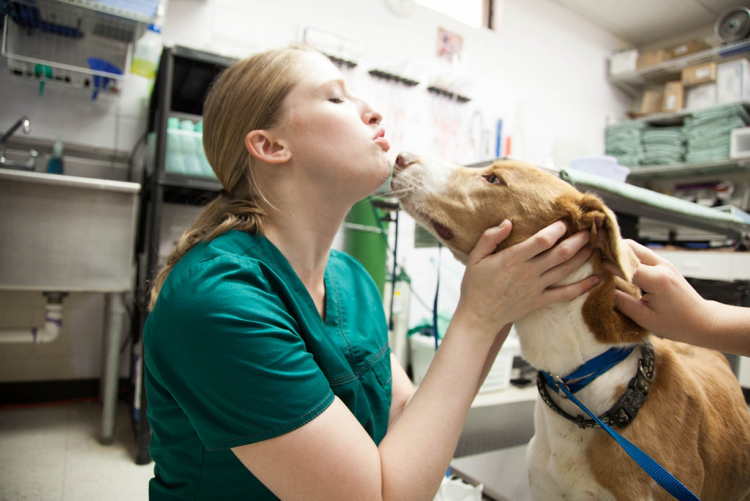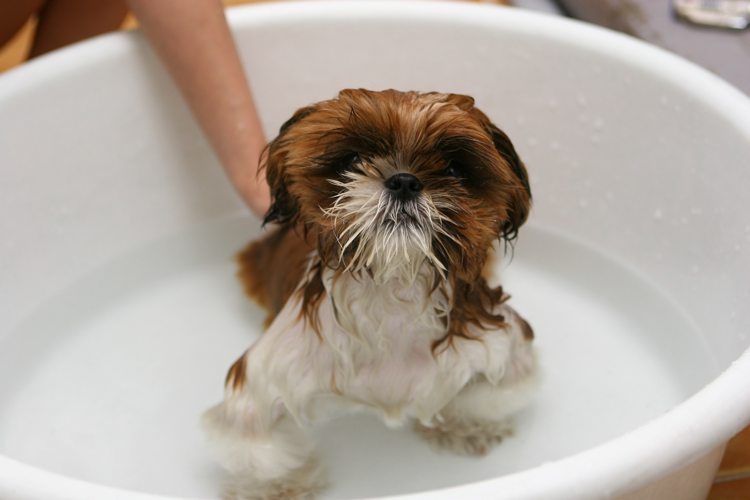The following tips have been provided by TV vet and dog welfare campaigner Marc Abraham who has partnered with VetBox to help make it easier for dog owners to keep their dogs healthy.
As dog owners, there are certain dreaded ‘p’ words. Poo is a part of our daily lives and we just have to get used to it. Parasites, however, are a much more unpleasant topic, but they are preventable. Read on for our vet-approved tips we recommend you make part of your regular routine to keep your four legged friend happy, healthy, and parasite-free.
1. Prevention is the best form of treatment

Some parasites can appear invisible or very difficult to spot, so preventative measures should always be a part of your regular routine as a dog owner. Don’t wait around until you spot signs of a parasite – the results could be a very sick dog!
For example, try to teach and prevent your dog to avoid eating snails, soil, and dog poo to avoid some of the risks associated than to make more trips to the vet for treatment.
2. Use vet-approved treatments

Always choose preventative anti-parasite treatments recommended by a vet, and always treat as per the recommended frequency, as these preparations are often the only products strong enough to actually work and kill any parasites.
To ensure your dog is protected, you should treat them for fleas once every month; For example use an insecticide which can be applied to the back of your dog’s neck via a pipette. It’s important to carry out this treatment regularly to guarantee that the life cycle of larvae to adult flea is interrupted.
Dogs should ideally be wormed at least every 3 months. We recommend finding a flavoured tablet to make it more palatable for your pooch. It’s important to choose a worming treatment that will protect against a broad spectrum of worms. Always use a vet-recommended treatment that will cover roundworms (ascarids), hookworms, whipworms, and tapeworms. Treatments are classed as ‘anthelmintic’ – which simply means that it’ll kill or stun the worm without harming your dog.
3. Keep your dog clean

Cleaning your dog’s paws and coat after walks and outdoor playtime is an important part of your routine to keep your dog healthy. Hookworms are sometimes found in contaminated soil, so can be picked up by your dog’s paws
Signs of tapeworm include white-cream coloured segments or spots in your dog’s poo, and your dog itching their bottom. However, the segments may be too small to see, which is why a preventative approach is so important.
Regularly check your dog’s coat, ears, and paws for signs of fleas. Symptoms of fleas include skin lesions, hair loss, and bald patches due to bites and scratching. You can sometimes see the fleas themselves as well as ‘flea dirts’, which are dried flea faeces. You’ll be able to tell these apart from ordinary dirt by brushing them off with a comb, collecting on a piece of kitchen towel or cotton wool, and sprinkling on water. If it is flea faeces, they’ll usually turn a dark red-brown colour, due to the blood that the fleas have excreted.
Staying vigilant and preventing fleas will also help prevent tapeworms, as tapeworm larvae can be ingested by a dog eating a flea.
If you spot any of the above or suspect signs of parasitic infestation then always contact your vet immediately – your dog may need urgent treatment.
4. Keep your home clean

As well as regularly checking and treating your dog for parasites it’s always advisable to check and treat your home environment too. It’s important to keep your home clean – pay particular attention to regularly clean and examine your dog’s bedding, as well as vacuuming areas where your dog sleeps. In cases of suspected parasitic infestations it’s also advisable to use effective vet-approved house sprays too. VetBox recommends Indorex.
If you have a garden, you’ll need to ensure that your lawn is kept free of fox poo, and keep your dog’s toys clean from snails and slugs. Don’t let your dog eat slugs and snails, either, since these are all possible ways that dogs can be infected by nasty lungworm.
5. Check your other pets, too

If you have more than one dog at home, ensure you check them all. If you own both a cat and a dog, please ensure you check your cat regularly as fleas will often pass between cats and dogs. It’s important that all your pets receive regular preventative treatment to ensure that parasites don’t spread.
If you’re looking for a simple, all-in-one solution to ensure your dog stays flea, worm and parasite free, why not give VetBox a try? Approved by TV vet and dog welfare campaigner Marc Abraham, it’s a monthly subscription box that’s specially tailored to your pooch by a team of qualified vets.
